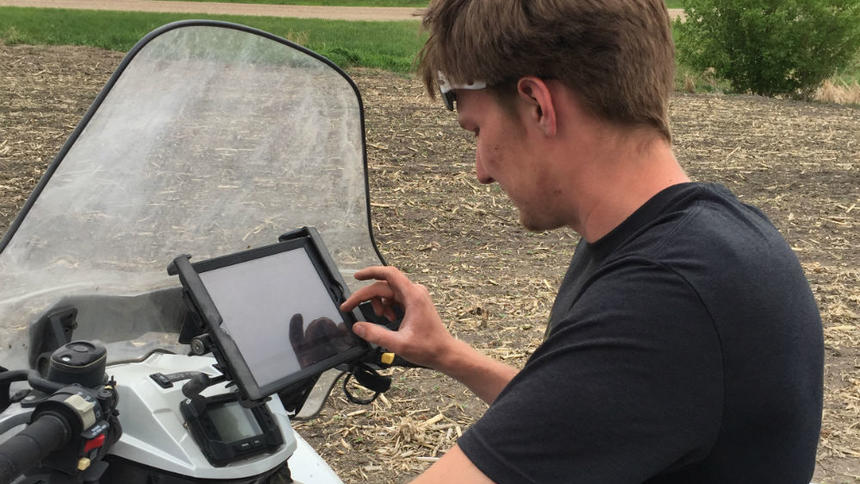STARKVILLE – There’s always something for farmers to monitor or manage, and in many row-crop fields across the state, weed control is the big concern of the moment.
Jason Bond, weed scientist with the Mississippi State University Extension Service, said rains that keep machinery out of the fields allow time for weeds to grow rapidly.
“The longer a weed is there, the greater impact it has on the growth and development of the crop,” Bond said. “A smaller weed is easier to control with herbicide. When you have a herbicide-resistant weed, you automatically have fewer herbicide choices, and timing becomes even more critical.”
Typically, producers burn down overwintering weeds with herbicides before planting the new crop. At that time, a residual herbicide is applied to limit the growth of new weeds that could spring up when the crop is still small. Residual herbicides are water-activated.
Darrin Dodds, Extension cotton specialist, said cotton growers had trouble in many areas with these residual herbicides.
“Most of our cotton crop was planted in two time windows. Those who planted the first week of May got a rain a few days later that activated their residual herbicides,” Dodds said. “The cotton planted during the next week did not get a timely rain, and the residual herbicide never got activated before the crop came up.”
Dodds said that when it did rain on these crops, the herbicide in the soil splashed up on the young cotton seedlings, causing some damage.
“For the most part, the cotton plants damaged by the residual herbicide will come out of it once it begins to grow rapidly,” Dodds said.
Extension rice specialist Bobby Golden said this year has been challenging for rice.
“We’ve mainly had problems with big grasses, such as barnyard and sprangletop,” Golden said. “Unlike other crops, dry weather has hurt our grass control efforts. It has been so dry that many rice herbicides have not worked as well as they do when we have adequate soil moisture.”
When producers miss herbicide applications, they try to make them as salvage applications when the rice fields are flooded. However, these applications often have limited effectiveness in weed control.
“If we cannot control grasses in rice, they drag the rice down once the crop has produced heads, and may limit yield potential and harvest efficiency,” Golden said.
Trent Irby, Extension soybean specialist, said adverse weather conditions like frequent rains or windy conditions created many problems this planting season.
“Sometimes, rain may knock us out of the field during planting or shortly after, and if we can’t get back in and make an herbicide application prior to crop emergence, our list of herbicides options becomes much shorter,” Irby said. “After crop emergence, we rely on herbicides that work best on small weeds.
“Frequent rains or windy conditions that don’t allow opportunities for herbicide applications may allow enough time for weeds to grow to a point that reduces levels of control,” he said.
Corn is the earliest planted crop in Mississippi. Erick Larson, Extension corn specialist, said wet weather prevented many acres intended for corn from being planted, but weed control was generally successful.
“Much of our corn has tasseled and is progressing through early reproductive stages, which are the critical stages for yield potential,” Larson said. “High corn yields are dependent on moderate nighttime temperatures. Nighttime temperatures of 70 or less promote corn’s yield potential.
“Timely rainfall will also be important, especially for dryland acres, since some are planted later than normal this year,” he said.
Credit: www.djournal.com




